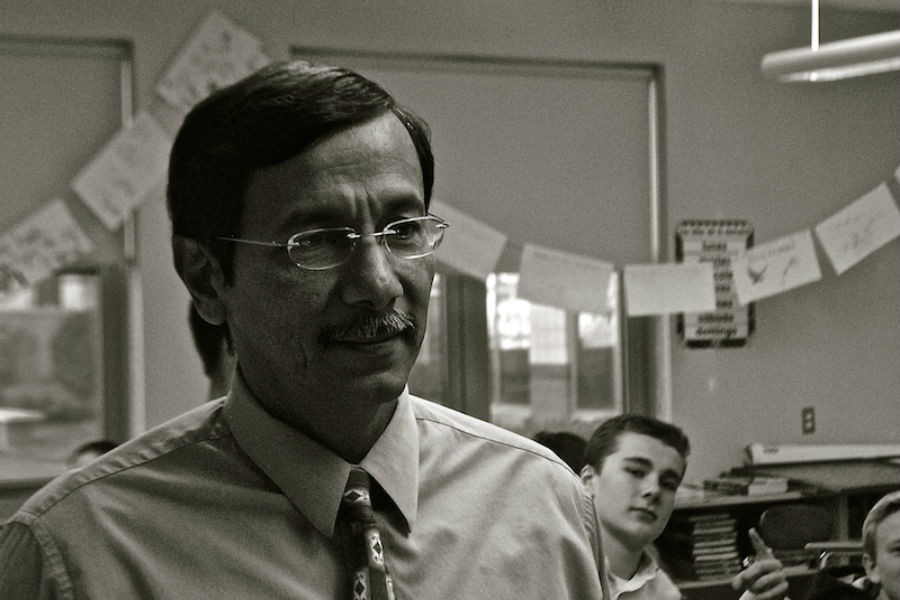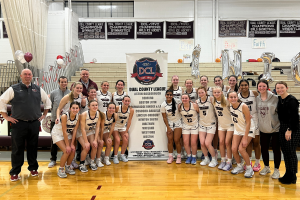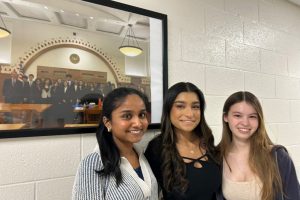Señor Alemán returns to WA
October 19, 2015
Those who have lived in the United States for generations with their families may be accustomed to the unique opportunities the country provides, so it is easy to forget the hurdles one must overcome to live here. Having endured the hardships of moving to the United States as a young adult, Spanish teacher José Alemán has personal experience with these hurdles.
“The reason why I moved has a lot to do with the aspirations of my family and the responsibilities of providing for them in an environment that is not as violent as El Salvador and that is also connected to the heritage of my kids,” said Alemán.
Alemán immigrated to this country from Santa Anna, El Salvador with the aspirations of improving the lives of future generations in his family. He came for bigger opportunities, stability, better pay, and a huge improvement in public safety. Additionally, his wife was born in the United States, so Alemán has strived to integrate the cultures of El Salvador and the United States into his children’s lives.
“It’s important that [my children] acknowledge that their parents have [a rich culture] and that if they don’t keep it, they will lose a lot of ground, and [their] future may be not as bright,”said Alemán. “Parents and especially grandparents are the ones who need to keep that flame lit.”
Along with preserving his own heritage, Alemán also hopes to help the students at WA broaden their knowledge of other cultures.
“We need to bring our students closer to the world which is beyond the boundaries of Westford. […] It’s a bubble, it’s safe. We should not ignore that this bubble is part of a bigger bubble that deals with issues as controversial as immigration, poverty, hunger, violence, domestic violence, [and] intolerance around here. Part of our commitment also asks us at the school to allow our students to venture, to walk inside the bubble and outside,” said Alemán.
As a Spanish teacher, Alemán not only introduces the cultures of other countries to his students, but he also aspires to broaden their knowledge of controversies and cultures close to Westford.
“I realized the opportunities here and the culture. […] We were excellent in so many ways that I thought this is a nice place. Kids have that ambition to excel and so [we need] to go beyond the boundaries of Westford and meet the world that is right there, waiting for us,” said Alemán.
Since Alemán teaches in Westford, he currently lives in Ayer with his wife’s aunt during the school week. However, his wife and children live two hours away in Vermont, so he visits them on the weekends.
Although some may view his current living situation as troubling, Alemán has endured more difficult hardships. He has attempted to become a citizen, but after waiting three years in California, a decision for his case was not reached. He recounts the process of immigration as being disheartening because of the time, money, clean record, and expertise in English required. Alemán ultimately decided to withdraw his case because of the extreme hurtles.
“And lets face it – young people or anybody come here to work. They don’t come to travel through the U.S. and all the fifty states, no, they come here to work from day one, so they don’t have much time for their own education,” said Alemán.
Because legally crossing the border is extremely difficult, Alemán proposes that the United States develop a better system so that every immigrant has an opportunity to apply and receive training before entering the country.
“For making a process so difficult, you are essentially forcing people to come illegally, and then the problem is bigger. The argument is for legal immigration, but a process that really takes into consideration all the individual circumstances of every immigrant,” said Alemán.
Despite these difficulties, Alemán’s commitment to his family in both the United States and in El Salvador never wavers. He and his family visit El Salvador every year.
“It is very clear to me that we tend to feel that we abandon somebody else and the way we have to cover that event is by supplying [what the family needs],” said Alemán.
Alemán sends money home constantly to stay connected and have responsibility for his family. He said it helps him feel like he has not failed those he has left behind.
“You do not live the life of an immigrant. You haven’t abandoned anybody,” said Alemán.
Alemán also stresses the importance of keeping traditions and heritage alive in another country.
“[It is] so important to not forget where you are coming from,” said Alemán.







